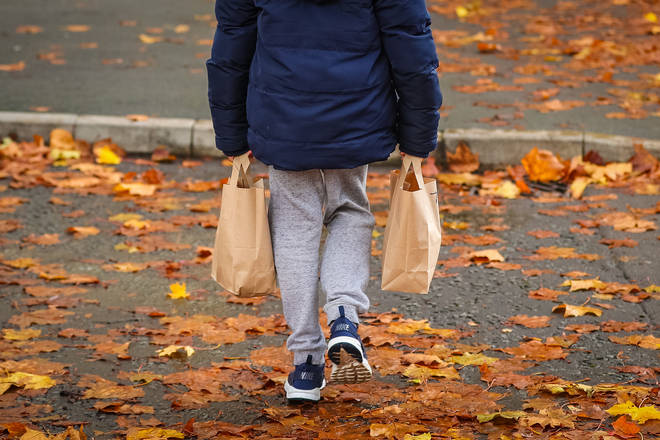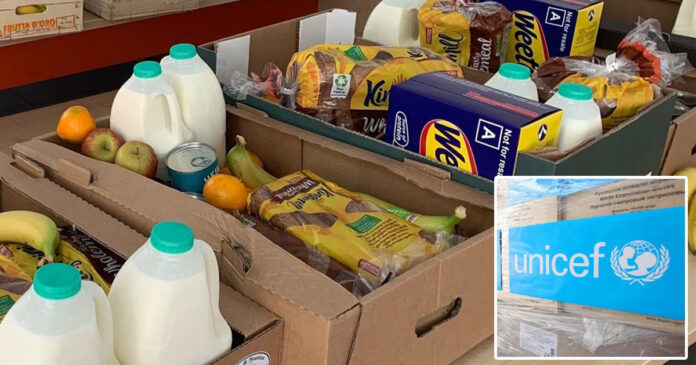UN humanitarian aid agency Unicef are providing over £700,000 in emergency funding to feed hungry children in the UK, for the first time in their 70 year history.
This is the first time Unicef have launched a domestic emergency response in the UK, with money going to “over 30 communities up and down the” country.
Anna Kettley, Director of Programmes at Unicef UK, said: “We know that the coronavirus pandemic is the most urgent crisis affecting children since the Second World War and it is ending childrens’ lives everywhere, including right here at home.
“We know that before the pandemic 2.4 million children across the UK were already growing up in food insecure households and that since the lockdown period and the ongoing crisis, 32 percent of households have experienced a drop of income.
“Some families are having to make some really difficult decisions right now between heating and eating.”

Data from the Food Foundation estimated 18 percent of 8-17 year-olds reported experiences of food insecurity over the summer holiday, when a food voucher system was in place for eligible families.
Meanwhile, food bank charity the Trussell Trust said, on average, they gave out 2,600 parcels of food to children every day between April and September.
As part of the £700,000 Unicef funding , a £25,000 grant will be given to the School Food Matters charity in the London borough of Southwark, with the money used to supply over 20,000 breakfasts to children during the holidays.
Charity founder Stephanie Slater described it as “significant” that this is “the first time in the 70 year history of UNICEF that they have supported a UK project”.
“That just shows us that we are all acknowledging there is a real issue here with food insecurity and it is not going to go away anytime soon.
“Covid has absolutely clobbered low income families and they are really struggling,” she explained.
The charity have already provided over half a million breakfasts over their 18-week summer holiday programme, with the Unicef funding allowing them to support 1,800 children across the Christmas holidays and February half term.
Following on from feedback from families who received boxes in the summer, boxes will contain fresh pineapple, oats, desiccated coconut, and rice in addition to whole meal bread, baked beans and milk.
It includes 1.2 tonnes of fruit and veg donated by organic food company Abel & Cole.
However, Ms Slater stressed: “We know we are just nibbling around the edges of this problem and what it needs is a coordinated response and it needs policy change.
“We know we can support 1800 children over these holidays, but Southwark is telling us there are 15,000 children in their London borough alone who are food insecurity.”
She added: “Many of the families we supported over the 18 week programme, in fact one in five of the families were not eligible for free school meals.
“So we know that this level of need goes far beyond the government’s measure of food insecurity and disadvantage.”
LBC

